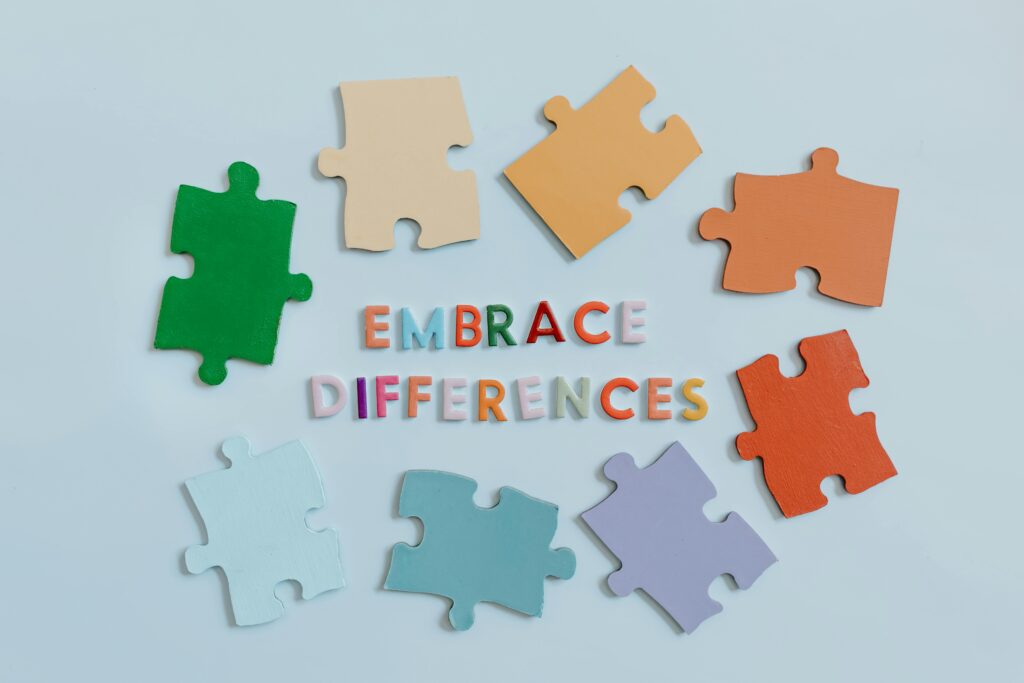How Our Home Care Agency Supports Individuals with Autism
April is an important month dedicated to raising awareness, promoting acceptance, and fostering understanding about Autism. As we come together to recognize Autism Awareness Month, it’s crucial to not only celebrate the achievements of individuals with Autism but also to reflect on how we, as a community, can make a difference in the lives of those with Autism. At Assistedly, we understand the challenges faced by individuals with Autism, both children and adults, and we are committed to providing personalized, compassionate care to support them in leading fulfilling lives.
Understanding Autism Spectrum Disorder (ASD)
Autism Spectrum Disorder (ASD) is a developmental disorder that affects how a person experiences the world and interacts with others. It is called a “spectrum” because the symptoms and challenges of Autism can vary widely, from mild to severe, and each individual is unique in their needs, strengths, and areas of development. According to the Centers for Disease Control and Prevention (CDC), Autism affects approximately 1 in 36 children in the United States, with a prevalence that continues to rise. The disorder can affect communication, social interactions, behavior, and sensory processing, often requiring specialized care and support.
The Impact of Autism Awareness Month
Autism Awareness Month, celebrated every April, serves as a platform for advocacy, education, and understanding. It’s a time to raise public awareness about the challenges faced by individuals with Autism and their families, and to highlight the importance of inclusion, support, and early intervention. The goal is to create a more inclusive and accepting society where people with Autism are given the opportunity to thrive and succeed.
At Assistedly, we believe that understanding Autism and its impact is essential to providing effective care. By educating our community about the nuances of Autism, we can work together to create a supportive environment for those affected by it.
The Role of Early Intervention
Early intervention is one of the most critical aspects of supporting individuals with Autism. Research has shown that early, targeted interventions can significantly improve developmental outcomes for children with ASD. The sooner an intervention is implemented, the more likely a child is to develop vital skills in communication, social interaction, and behavior.
According to the National Institute of Mental Health (NIMH), behavioral therapies, such as Applied Behavior Analysis (ABA), and speech and language therapy, are proven to help children with Autism acquire essential skills and reduce challenging behaviors. Early intervention programs tailored to the needs of each child can lead to improvements in learning, communication, and overall quality of life.
Supporting Individuals with Autism Across the Lifespan
While Autism Awareness Month often focuses on children, it’s important to remember that Autism is a lifelong condition. Adults with Autism face unique challenges as they navigate adulthood, including difficulties with employment, independent living, and maintaining social relationships. Many individuals with Autism also struggle with co-occurring conditions such as anxiety, depression, and sensory sensitivities.
For adults with Autism, finding support that addresses both their cognitive and emotional needs is essential. Research published in Autism Research emphasizes that the transition to adulthood can be a particularly challenging time for individuals with Autism, with many facing difficulties in securing employment and building independent lives. With proper support, adults with Autism can lead fulfilling lives, develop strong relationships, and make valuable contributions to society.
At Assistedly, we understand that Autism doesn’t end at childhood. Our team provides support for individuals with Autism of all ages, including assistance with daily living skills and social skills development. Whether it’s helping an adult provide respite care for family caregivers, our goal is to enhance the quality of life for individuals with Autism throughout their entire lifespan.
How We Support Children with Autism
When it comes to children with Autism, early identification and intervention are key. Children with Autism often display signs of social and communication difficulties, repetitive behaviors, and sensory sensitivities. As caregivers, it’s essential that we recognize these signs early and provide the right support.
At Assistedly, we work closely with families to create customized care plans for children with Autism. Our team of professionals offers a variety of services, including:
- Social Skills Training: Many children with Autism struggle with social interactions and making friends. Social skills training can help children develop the ability to engage in meaningful relationships, navigate social cues, and respond appropriately in different social situations.
- Parent Support and Education: We believe that family members are an essential part of the care team. Our agency offers resources and guidance to parents and caregivers, helping them understand their child’s needs and supporting them in becoming strong advocates for their child’s development.
How We Support Adults with Autism
Adults with Autism face unique challenges as they transition from adolescence into adulthood. While they may have developed certain skills and strategies during childhood, they may still require ongoing support to lead independent, fulfilling lives. At Assistedly, we provide tailored services for adults with Autism that focus on the following areas:
- Independent Living Skills: We help adults with Autism develop the skills needed to live independently, including cooking, cleaning, managing finances, and using public transportation. Our team provides hands-on support and training to ensure that adults with autism can lead self-sufficient lives.
- Community Integration: Many adults with Autism experience social isolation. We encourage community participation through social groups, recreational activities, and volunteer opportunities. These experiences help adults with autism build meaningful relationships and develop a sense of belonging.
- Respite Care for Families: Caring for an adult with Autism can be demanding, especially for family members. Our respite care services provide families with a much-needed break, while ensuring that their loved one receives high-quality care and support.
The Importance of Advocacy and Acceptance
Autism Awareness Month is also an opportunity to advocate for the rights and needs of individuals with Autism. It’s a chance to promote acceptance and understanding in our communities, workplaces, and schools. By spreading awareness and challenging misconceptions about Autism, we can help create an environment where people with Autism are valued, supported, and celebrated.
At Assistedly, we are committed to advocating for individuals with Autism. Our mission is to provide the highest quality care and support, ensuring that each person we serve can live a life of dignity, independence, and fulfillment. We encourage our community to learn more about Autism, engage in conversations about acceptance, and support individuals with Autism in every way possible.
Conclusion
As we celebrate Autism Awareness Month, let’s reflect on the importance of creating a world that embraces diversity, inclusion, and understanding. Individuals with Autism, whether children or adults, have unique strengths and talents that contribute to our society in meaningful ways. At Assistedly, we are proud to be part of their journey, offering personalized care and support to help them reach their full potential. Together, we can make a difference by raising awareness, promoting acceptance, and advocating for the rights of individuals with Autism.
For more information about how our agency can support you and your loved one, contact us today. We’re here to help!
Sources:
- Centers for Disease Control and Prevention (CDC). (2023). Data & Statistics on Autism Spectrum Disorder. https://www.cdc.gov/ncbddd/autism/data.html
- National Institute of Mental Health (NIMH). (2022). Autism Spectrum Disorder. https://www.nimh.nih.gov/health/topics/autism-spectrum-disorders-asd
- Autism Research. (2021). Supporting Adults with Autism: Challenges and Strategies. https://www.autismresearch.org/adult-support



